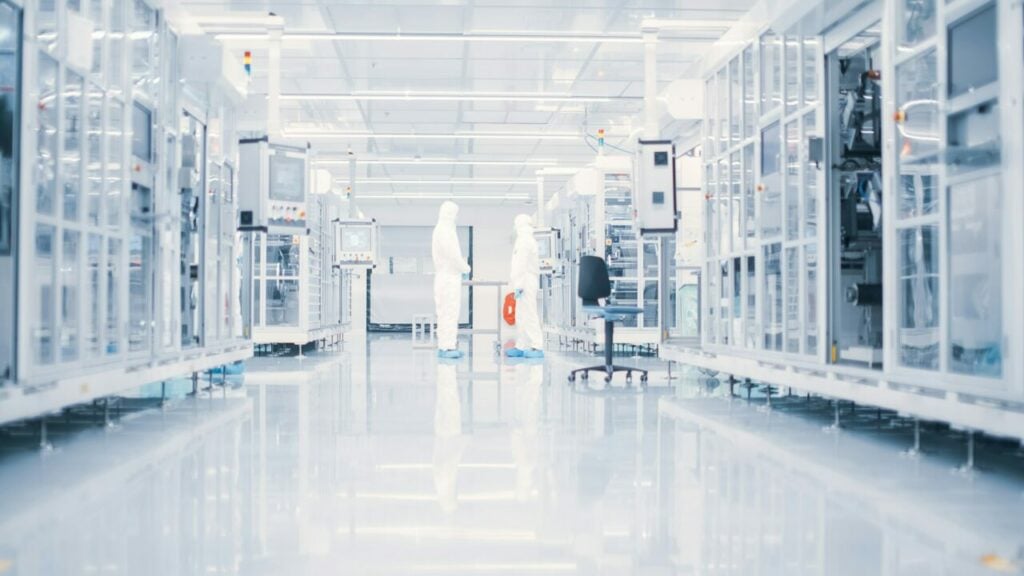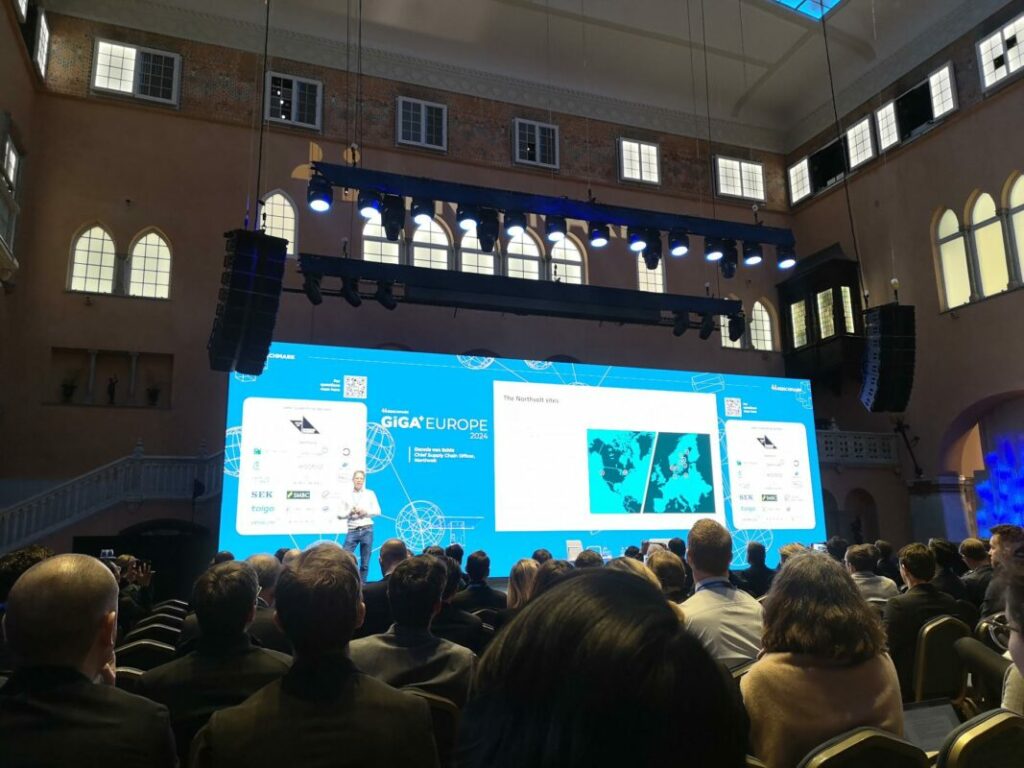
Executives from Northvolt discussed the gigafactory company’s ramp-up after a slow 2023 and how the company intends to be competitive in the global market, as well as cell technology, recycling, sourcing from China and an eventual IPO.
Energy-Storage.news was talking to Anders Thor, Northvolt’s VP of communications, whilst at Giga Europe in Stockholm, a two-day event (12 & 13 March) hosted by Benchmark Mineral Intelligence. The event brings together Europe’s battery ecosystem, from gigafactories to raw material producers. Dennis van Schie, Northvolt’s chief supply chain officer, also gave a talk and Q&A on-stage with industry consultant and speaker Nigel Atkins.
Enjoy 12 months of exclusive analysis
- Regular insight and analysis of the industry’s biggest developments
- In-depth interviews with the industry’s leading figures
- Annual digital subscription to the PV Tech Power journal
- Discounts on Solar Media’s portfolio of events, in-person and virtual
2024: a year of accelerated ramping up
“We had some setbacks in 2023 and some successes in 2024 so far. One setback was planned downtime to ramp back up more efficiently, but that ramp up didn’t happen as expected. But all these setbacks are great learnings and mean we’ll ramp up more quickly at future sites,” Thors said.
Its first operational facility is Northvolt Ett, a cathode active material (CAM) and cell production facility in Northern Sweden, which has two production lines installed and online with an annual production capacity of 16GWh. That has been the case since 2022, but the company only managed to ship 79MWh of product in the first nine months of 2023.
Thor said 2024 should see a big ramp up however: “We’re going from thousands of cells per week to tens of thousands of cells per week this year. 2023 was a year of investment and learning to scale.”
Thor said that it has been shipping to several customers but a big one is Scania, the Nordic company mainly known for trucks. Thors claimed the two companies have developed a battery that can run for 1.5 million km – longer than the lifetime of the truck. “That’s a big deal for Scania.”
Staying competitive in a market with ever-lower prices from China
Its close work with large automotive OEMs like Scania, BMW and Volkswagen is what the company claims will help it remain competitive in a market where battery cell prices from China fall ever lower.
“It’s the joint development and design of our batteries with our partners that is important. People say batteries will be a commodity, but we’ve shown the opposite. The value premium of these companies’ vehicles is dependent on the battery.”
Sustainability is also Northvolt’s central USP and the firm claims its carbon footprint is 30-40% of a standard battery (partially thanks to an abundance of clean hydropower energy in northern Sweden, where Ett is located).
In an earlier Q&A on stage, van Schie had said: “How green we need to be is a debate. Yes, there is an ESG premium, and we know how much it is. But over time, it will stop being a premium”
Northvolt is building nickel manganese cobalt (NMC) battery cells primarily because of its higher energy density than lithium iron phosphate (LFP), as well as its greater recycling value. The European industry is making a big push on recycling as a way to increase – in the long-term – the proportion of raw materials it can source domestically.
Approach to energy storage system (ESS) market and new tech
Northvolt is also targeting the energy storage system (ESS) market from a facility in Poland – executives from that segment discussed the approach at the Energy Storage Summit Central Eastern Europe (CEE) in September 2023.
Asked how its approach to being competitive applied to the ESS segment, which does not have the same EU incentives to use European cells as the EV space, Thor said: “Those differentiators could be transferred to ESS. Those customers are interested in sustainability, having a safe and reliable product, and a digitally connected one. We’ve invested a lot in our digital systems.”
As with Ett, Thor said this year will also be a year of ramp-up for ESS at its Polish plant (Dwa), which started manufacturing its ESS systems late last year and is aiming for 12GWh of max production.
He also described the firm’s move into sodium-ion battery technology with technology partner Altris as “massive”. The tech holds promise thanks to more abundant minerals and a wider range of operation temperatures, and many see it as the next to scale after lithium-ion.
“A lot of Chinese competitors have developed sodium-ion batteries that still need cobalt, nickel, etc. to work. With Altris, our Prussian Blue-based tech does not need any of those metals. That opens up a completely new opportunity for sustainability. We’ve kept quiet about that work for 2-3 years until we had something real to reveal,” Thors said.
“However, it’s still a five-year perspective for mass production of those cells, though it has beautiful potential. We’re also working on lithium metal batteries which have a higher energy density than lithium-ion, with the Cuberg acquisition.”
Germany plant to launch this month
Perhaps the company’s second most-discussed project after Ett is its German gigafactory project, Drei, in Heide. The facility was the first to receive a funding package under a new EU approach to match support offered by other countries to projects which were considering relocating, receiving €1 billion in support in January 2024.
Thors: “We were impressed by the German and European response. We had an honest and open discussion about the impact of the US Inflation Reduction Act. We were seeing our supply chain and customers really start to focus on North America. They came to understand how massive the IRA is, and both the EU and Germany stepped up and created a framework and support system for Drei.”
Construction on the plant will begin with a launch party in March 2023, with the aim to have it operational by 2026.
China sourcing, recycling and Northvolt’s IPO
Thors said that currently, the company sources lithium carbonate from outside Europe including China, which dominates the supply market, but was looking to transition away from that.
“I do want to say that this industry is often expressed as an Asia versus Europe thing. We are built on a lot of Asian competence and Asian partnerships.
As mentioned earlier, the European industry is putting a big focus on recycling. “It’s not something we do just for sustainability; there’s also a strong business case to do it,” Thors said.
Lastly, on the IPO, he said. “Being in this expansion phase, naturally we could tap the public markets. But the interest in us is strong enough that we can also take our time. We’d also prefer more of an IPO window to open back up.”


